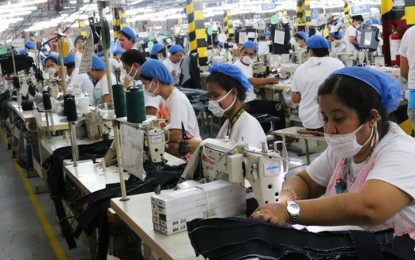
MANILA – Closure of businesses during the community quarantine is the reason for the spike to record-high Philippines unemployment rate last April, thus Finance Secretary Carlos Dominguez III believes the uptick in the number of unemployed persons is temporary.
Citing the recent statement of Bangko Sentral ng Pilipinas (BSP) Governor Benjamin Diokno, Dominguez said the unemployment rate in the fourth month this year “is not due to any other reason other than the lockdown.”
“So, there is no structural problem with our economy except that there was a decision made to lockdown the economy in order to reduce the potential number of people who will get sick and die,” he said in a press briefing during the Sulong Pilipinas e-conference with the business community Monday.
Last April, unemployment rate surged to 17.7 percent, accounting to about 7.3 million individuals. This was way higher than the 5.3 percent rate last January and the 5.1 percent in April 2019.
Dominguez is optimistic the figures will be better in the coming months as the economy reopens, demand starts to pick up and people regain their jobs.
As a result of the lockdown, growth, as measured by gross domestic product (GDP), posted a 0.2-percent contraction from a 6.4-percent output in the previous quarter.
Dominguez said while the government’s financial support to workers will not be able to cover every one, Filipinos will start to find jobs and this will help in the economic recovery.
He declined to give any figures on how much this unemployment rate will impact on domestic output, saying the inter-agency Development Budget Coordination Committee (DBCC) will still discuss it since members of the Committee have not had a meeting since the latest unemployment report came out last June 5.
“But definitely, the unemployment is a result of a drop in the GDP rather than the other way around,” he added.
Socioeconomic Planning Secretary and National Economic and Development Authority (NEDA) director general Karl Chua is optimistic that employment figures in the coming months will be better since the economy continues to open up.
Chua said the economy started this year with good prospects, but the government needed to temporarily close Luzon, which accounts for about 75 percent of the country’s total annual output, because of the pandemic.
The government, however, ensured that workers that are affected will be extended financial support so the impact on the total economy will be less, he said.
He added authorities will use not just one policy “but all the tools in our arsenal to address the impact of Covid”.
In terms of domestic output, Chua said the second quarter “is likely to be worse” but cited that “since the start of June or the end of the second quarter, we have gradually shifted most of the country to GCQ (general community quarantine) or modified GCQ so the prospects, I think, are getting better.”
“But that doesn’t mean we have to get off our guards. So, we will still have to maintain the minimum health standard. We will still have to proactively manage the economy. And we will, on a very regular basis, look at all the economic indicators to inform us whether there shall be any change in our economic program for the year,” he said.
Chua said GDP this year will be determined by two important factors, namely the government’s pro-active policy to address the pandemic, as well as the public’s cooperation.
“We have to work together. Otherwise, if one of us don’t do our share, then the recovery wouldn’t be as we expect. So, the cooperation of everyone is needed to achieve faster recovery as possible,” he added. (PNA)
